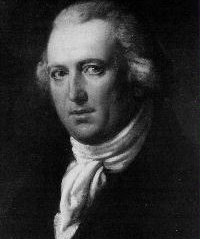
Johann Baptist Vaňhal
With such contemporaries as Haydn, Mozart and Beethoven, some of the truly praiseworthy composers of the second half of the 18th century have fallen into obscurity. They are referred to as “minor masters,” whose works are ignored by the public at large, and are performed in concert halls only as curiosities, rather than for their own merit. This is a pity not only because these composers wrote excellent music but also because it would add much to the understanding of the works of the “truly great” composers if they were performed alongside these seldom-heard pieces, so that their original musical context could be highlighted. Johann Baptist Vaňhal (variously named Wanhall or Wanhal in contemporary German sources) was one of these unduly neglected minor masters. He was born in 1739, in Nechanice, Bohemia, into a peasant family, and died in Vienna in 1813. In 1761, his Bohemian patron, the Countess Schaffgotsch took him to Vienna, where he studied with Carl Ditters von Dittersdorf. Between 1769–1771, he went on to refine his skills in Italy. This time coincided with his growing interest in opera, a genre in which he was to produce a number of works. Following a short stay in Croatia and Hungary, he eventually settled down in Vienna. Vaňhal is often considered a model of the bourgeois composer: he was one of the first artists not to have an aristocratic employer, who lived solely on the proceeds of his compositions and teaching. Ignaz Pleyel was among his best-known students. Vaňhal left behind a vast oeuvre of more than 1300 pieces, including 73 symphonies, more than 100 string quartets, and a large number of works for chamber ensembles and the piano. In addition to works in the traditional genres, he composed a programmatic piano sonata on the Battle of Trafalgar, and is credited with writing musical history’s first double bass concerto.